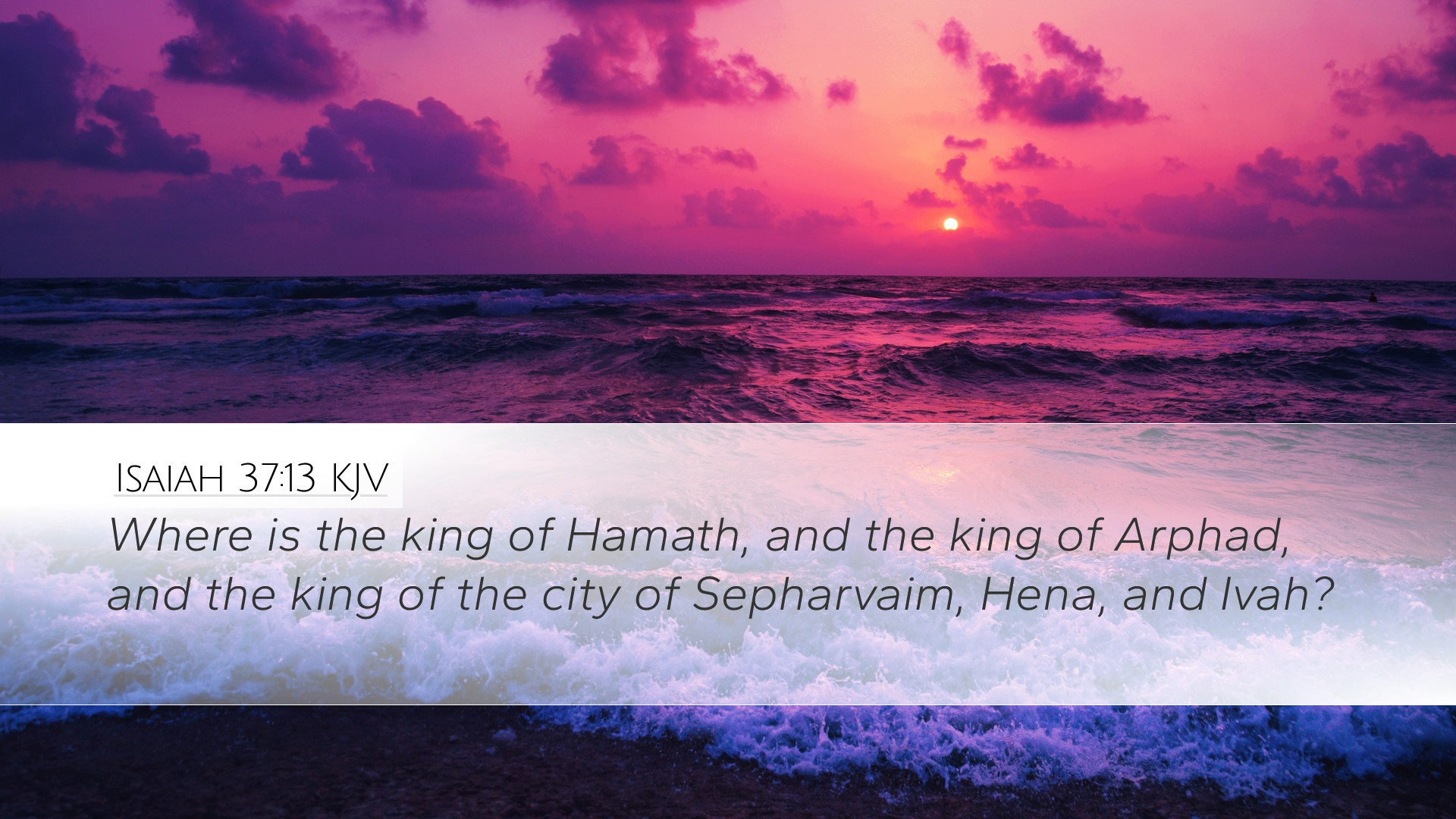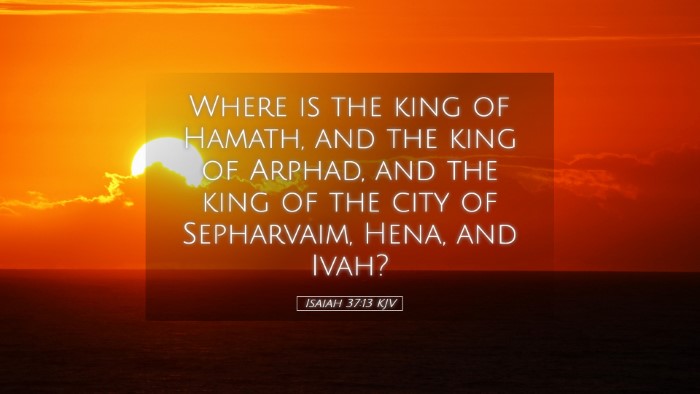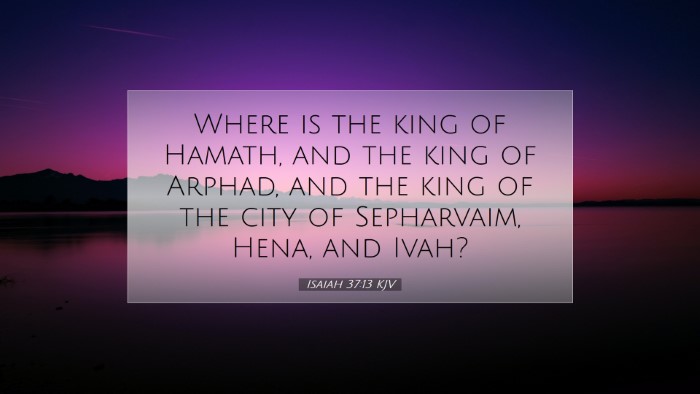Commentary on Isaiah 37:13
Verse Context: Isaiah 37:13 states, "Where is the king of Hamath? Where is the king of Arpad? Where is the king of the city of Sepharvaim? Where is the king of Hena and the king of Ivvah?" This verse is situated in a critical moment during King Hezekiah's reign, emphasizing the threats he faced from the Assyrian Empire.
Introduction
This verse emerges from a narrative portraying the overwhelming demands faced by the King of Judah amidst Assyrian aggression. The inquiries about the various kings signify the futility of human alliances and the futility of relying on mere mortal powers against divine providence. Utilizing insights from notable public domain commentators, we delve deeper into the theological implications and historical contexts surrounding this significant query.
Historical Context
Assyria was a dominant power during the time of Isaiah. Their conquests and campaigns instilled fear across the regions. Hezekiah's predicament ties into the larger geopolitical struggles of the time; hence, understanding the nature of the kings mentioned gives a glimpse of the political landscape.
- Hamath: A significant city-state in northern Syria that faced destruction by the Assyrians.
- Arpad: Another city-state that was known for its fierce defense but ultimately succumbed to Assyrian might.
- Sepharvaim: A lesser-known location, elucidating the vast reach of Assyrian dominance.
- Hena and Ivvah: Reflecting on more obscure sites, they underline the comprehensive sweep of Sennacherib's campaigns.
Theological Implications
Exploring this verse places emphasis on the authorship of divine authority over earthly powers. The following insights are drawn from leading commentators:
- Matthew Henry: Henry elucidates the rhetorical nature of the verse, noting it serves to highlight not only the fallibility of these earthly kings but also the ultimate sovereignty of God. The king's fate serves as a cautionary tale of misplaced hope in their strength.
- Albert Barnes: Barnes accentuates that this enumeration serves as a reminder that all human alliances fade in the face of divine judgment. The mention of these kings reflects a cycle where earthly rulers rise and fall, yet God's purpose remains unchallenged.
- Adam Clarke: Clarke interprets this verse within the context of Hezekiah's distress, emphasizing that the threats posed by Assyria could not be subdued through alliances with other kings, illustrating a clear message regarding the limitations of worldly power.
Reflection on Human Limitations
This verse invites introspection regarding the reliability of human associations in times of crisis. The questions posed serve to reflect on the isolation felt by Hezekiah, a sentiment that resonates through time:
- Human frailty: The verse accentuates the transient nature of human power and leadership. The kings mentioned, whose dominion once seemed secure, were now absent, emblematic of the inevitable decline that accompanies mortal rule.
- Hope in God: This passage encourages readers to find solace not in other leaders or earthly comforts, but solely in the Lord, who sovereignly encompasses all realms.
Application for Today
For modern-day pastors, students, and theologians, Isaac 37:13 offers rich applications amidst contemporary struggles:
- Trust in divine sovereignty: Even amidst uncertainties and fears, believers may take comfort in God's ultimate control over circumstances.
- Relying upon God rather than human strength: In a world that often promotes self-sufficiency and reliance on leaders, this passage serves as a reminder of the limitations of such dependence.
Conclusion
Isaiah 37:13 stands as a critical verse portraying the futility of human alliances against the backdrop of divine providence. With the insightful guidance of esteemed commentators, it encourages deeper reflection on the nature of power and the unwavering faithfulness of God amidst human frailty. This inquiry serves not only as a historical retrospective but as a timeless reminder that true power lies not in earthly kings but in the divine King who reigns eternally.


